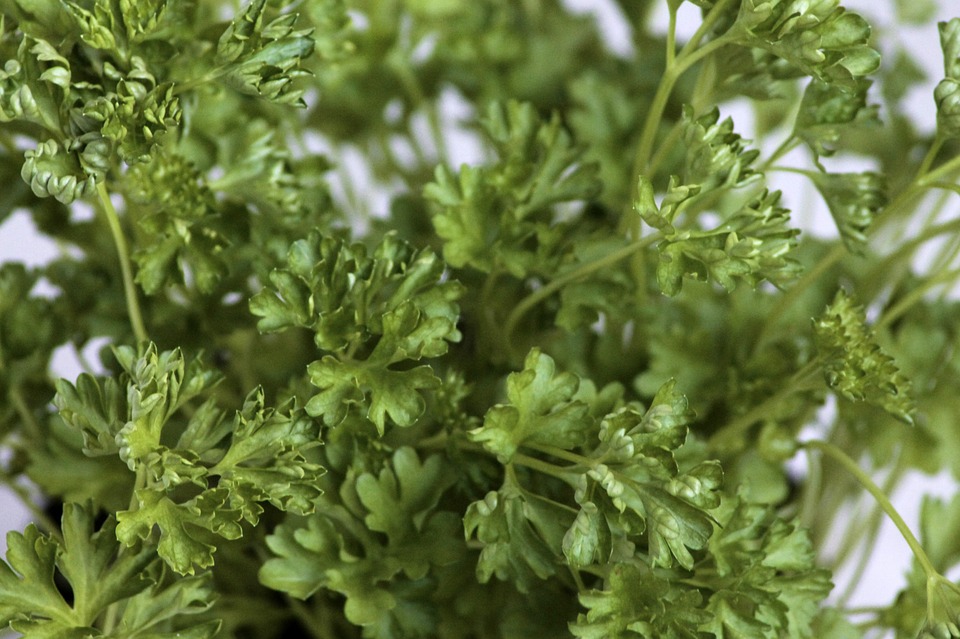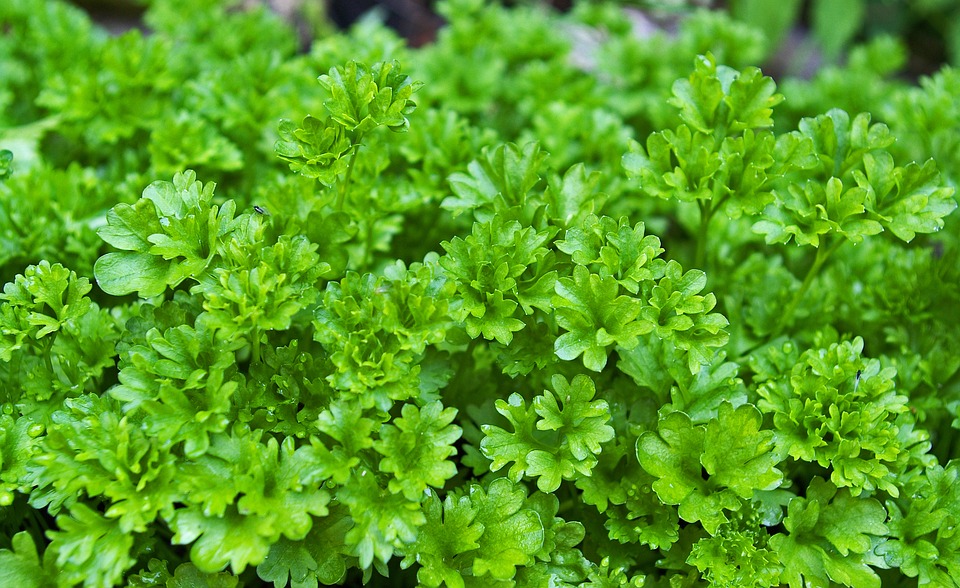This comprehensive guide explores the question of whether rabbits can safely eat parsley. We'll delve into the nutritional benefits, potential risks, the correct way to introduce parsley into your rabbit's diet, and provide expert advice on safe serving sizes, alternative leafy greens, and essential tips for ensuring your bunny's health and happiness.
Part 1: Understanding the Nutritional Needs of Rabbits

1.1 The Importance of a Balanced Diet
Rabbits are herbivores with specialized digestive systems designed to thrive on a diet rich in fibre, particularly from hay and grass. These foods provide essential nutrients, promote gut health, and prevent dental problems.
- Hay: The cornerstone of a rabbit's diet, hay should constitute the majority of their daily intake.
- Fresh Grass: A good source of fibre and essential vitamins, fresh grass is a natural and delicious addition to a rabbit's diet.
- Leafy Greens: A valuable source of vitamins and minerals, leafy greens should be offered in moderation as part of a balanced diet.
- Fresh Water: Access to fresh water is crucial for hydration and overall health.
1.2 Avoiding Harmful Foods
It's crucial to avoid foods that can be toxic or harmful to rabbits, such as:
- Chocolate: Contains theobromine, which is toxic to rabbits.
- Avocado: Contains persin, which can cause respiratory distress and heart problems.
- Onions and Garlic: Can cause red blood cell damage.
- Alcohol: Highly toxic to rabbits, even small amounts.
- Processed Foods: Lack essential nutrients and can contribute to obesity and health problems.
Part 2: Exploring the Nutritional Profile of Parsley

2.1 A Nutritional Powerhouse for Humans
Parsley, a widely used culinary herb, is renowned for its rich nutritional profile. It's a source of vitamins, minerals, and antioxidants, offering several health benefits for humans.
- Vitamin C: A potent antioxidant that supports immune function and collagen production.
- Vitamin A: Crucial for healthy vision, skin, and immune function.
- Vitamin K: Essential for blood clotting and bone health.
- Iron: Vital for red blood cell production and oxygen transport.
- Antioxidants: Protect against cell damage and reduce inflammation.
2.2 Parsley's Limited Value for Rabbits
While parsley provides numerous benefits for humans, its value for rabbits is questionable. Their digestive systems are not optimized to extract maximum nutrients from parsley, and it may even pose health risks.
- Lower Fibre Content: Parsley contains less fibre compared to hay and grass, essential for maintaining a healthy digestive system in rabbits.
- Limited Nutrient Absorption: Rabbits' digestive systems are designed to extract nutrients primarily from fibrous foods like hay and grass. Parsley, while nutritious for humans, may offer limited nutritional value for rabbits.
- Potential Digestive Issues: The different fibre content in parsley can cause digestive upset in rabbits, leading to diarrhoea, gas, or bloating.
Part 3: The Potential Risks of Feeding Parsley to Rabbits
3.1 The Oxalate Concern
Parsley contains oxalates, which can bind to calcium in the digestive system. This can lead to urinary tract issues like bladder stones, particularly in rabbits prone to these problems.
- Increased Risk in Prone Rabbits: Rabbits with a history of urinary tract issues or those genetically predisposed to them should avoid parsley completely.
- Monitoring Calcium Intake: If parsley is offered, monitor your rabbit's calcium intake and ensure it's not excessive.
- Alternative Leafy Greens: Opt for oxalate-lower leafy greens like romaine lettuce, kale, or collard greens for a safer alternative.
3.2 Digestive Upset: A Common Concern
Parsley's high water content and different fibre composition compared to hay and grass can cause digestive upset in rabbits. This can manifest as diarrhoea, gas, or bloating.
- Gradual Introduction: If you choose to offer parsley, introduce it gradually and in small quantities to allow your rabbit's digestive system to adjust.
- Monitoring for Symptoms: Observe your rabbit for any signs of digestive upset after consuming parsley. If you notice any issues, stop giving it immediately.
- Prioritising Hay: Hay should always remain the foundation of your rabbit's diet. Parsley should only be considered an occasional treat.
Part 4: Safe and Responsible Feeding Guidelines
4.1 When and How to Offer Parsley
While parsley's risks outweigh its potential benefits for rabbits, there are circumstances where small amounts may be acceptable.
- Occasional Treat: Parsley can be offered as an occasional treat in very limited quantities. It shouldn't replace essential foods like hay, grass, and fresh leafy greens.
- Variety: Offering a variety of safe leafy greens is crucial for ensuring your rabbit's nutritional needs and preventing boredom.
- Consultation: Always consult with a rabbit-savvy veterinarian before introducing any new food, including parsley, to your bunny's diet.
4.2 Safe Serving Sizes and Frequency
If you decide to offer parsley as a rare treat, exercise extreme caution and follow these guidelines:
- Small Quantity: Offer a tiny piece of parsley, no larger than a thumbnail, once or twice a week at most.
- Monitor for Reactions: Observe your rabbit closely after each introduction to monitor for any digestive upset or adverse reactions.
- Individual Variation: Each rabbit is different, and what may be tolerated by one bunny could cause problems for another.
Part 5: Exploring Alternative Leafy Greens for Rabbits
5.1 Abundant Choices
There are numerous safe and nutritious leafy greens that can provide your rabbit with a diverse and healthy diet.
- Romaine Lettuce: A good source of vitamins, minerals, and fibre, romaine lettuce is a popular choice for rabbits.
- Kale: Rich in vitamins, minerals, and antioxidants, kale is another excellent choice for rabbits.
- Collard Greens: These leafy greens are packed with nutrients and offer a good source of fibre.
- Spinach: While spinach is a nutritious green, it's best to offer it in moderation due to its high oxalate content.
- Dandelion Greens: These greens are a natural favourite for rabbits and are a good source of vitamins and minerals.
5.2 Fresh and Safe Practices
Always ensure that any leafy greens you offer your rabbit are fresh, clean, and free of pesticides. Wash them thoroughly before offering them to your bunny.
Part 6: The Role of Veterinary Consultation
6.1 Seeking Expert Advice
When in doubt, always consult with a veterinarian specializing in rabbit care. They can provide tailored advice based on your rabbit's individual health history and dietary needs.
- Individualized Recommendations: Veterinarians can assess your rabbit's specific needs and recommend appropriate foods and quantities.
- Early Detection: Veterinarians can identify and address any health issues related to diet early on, preventing complications.
- Peace of Mind: Consulting a veterinarian can provide peace of mind and ensure your rabbit receives the best possible care.
Part 7: FAQs
7.1 Can rabbits eat parsley leaves?
While parsley leaves offer some nutritional benefits for humans, they can pose risks to rabbits due to their oxalate content and potential to cause digestive upset. It's best to avoid parsley leaves or offer them only as an occasional treat in very small quantities.
7.2 Is parsley good for rabbits?
Parsley's benefits for humans are not necessarily transferable to rabbits. Its potential risks, including urinary tract issues and digestive upset, outweigh any potential benefits for rabbit health.
7.3 Can baby rabbits eat parsley?
Baby rabbits are even more susceptible to digestive upset and urinary tract problems. Therefore, parsley should be completely avoided for baby rabbits. Stick to safe and nutritious foods like hay, grass, and age-appropriate leafy greens.
7.4 Is parsley toxic to rabbits?
While parsley isn't strictly toxic to rabbits, its potential for causing digestive upset and urinary tract problems makes it a risky food. It's best to avoid parsley altogether or offer it only as an infrequent treat in minimal amounts.
7.5 What are the signs of parsley poisoning in rabbits?
There's no specific parsley poisoning in rabbits. However, signs of digestive upset like diarrhoea, gas, bloating, or lethargy could indicate an adverse reaction to parsley. If you notice any of these symptoms after giving parsley, stop feeding it immediately and consult your veterinarian.
7.6 How much parsley can a rabbit eat safely?
As a general rule, it's best to avoid parsley altogether. If you choose to offer it as a rare treat, a tiny piece, no larger than a thumbnail, once or twice a week at most is the maximum.
7.7 What are the best alternative leafy greens for rabbits?
There are numerous safe and nutritious alternatives to parsley. Some excellent choices include:
- Romaine Lettuce: A good source of vitamins, minerals, and fibre, romaine lettuce is a popular choice for rabbits.
- Kale: Rich in vitamins, minerals, and antioxidants, kale is another excellent choice for rabbits.
- Collard Greens: These leafy greens are packed with nutrients and offer a good source of fibre.
- Spinach: While spinach is a nutritious green, it's best to offer it in moderation due to its high oxalate content.
- Dandelion Greens: These greens are a natural favourite for rabbits and are a good source of vitamins and minerals.
7.8 Can rabbits eat parsley stems?
Parsley stems contain higher levels of oxalates than the leaves, making them even riskier for rabbits. It's best to avoid feeding parsley stems to rabbits.
Everyone is watching
-

Do Rabbits Lay Eggs? (The Surprising Truth)
OTHER TYPES OF PETSThis article will unravel the common misconception that rabbits lay eggs, exploring the fascinating world of r...
-

What's a Group of Rabbits Called? (A Comprehensive Guide)
OTHER TYPES OF PETSThis article delves into the fascinating world of rabbits, exploring the various terms used to describe a grou...
-

Can Rabbits Eat Grapes? A Guide to Safe Rabbit Treats
OTHER TYPES OF PETSThis comprehensive guide will explore the safety and suitability of grapes for rabbits, providing detailed inf...
-

Predators That Hunt Rabbits: A Guide to Natural Enemies
OTHER TYPES OF PETSI've always been fascinated by the circle of life, that delicate dance between predator and prey. Growing up ...
-

Are Rabbits Nocturnal Animals?
OTHER TYPES OF PETSThe question of whether rabbits are nocturnal animals is a fascinating one, with a surprisingly complex answer...
